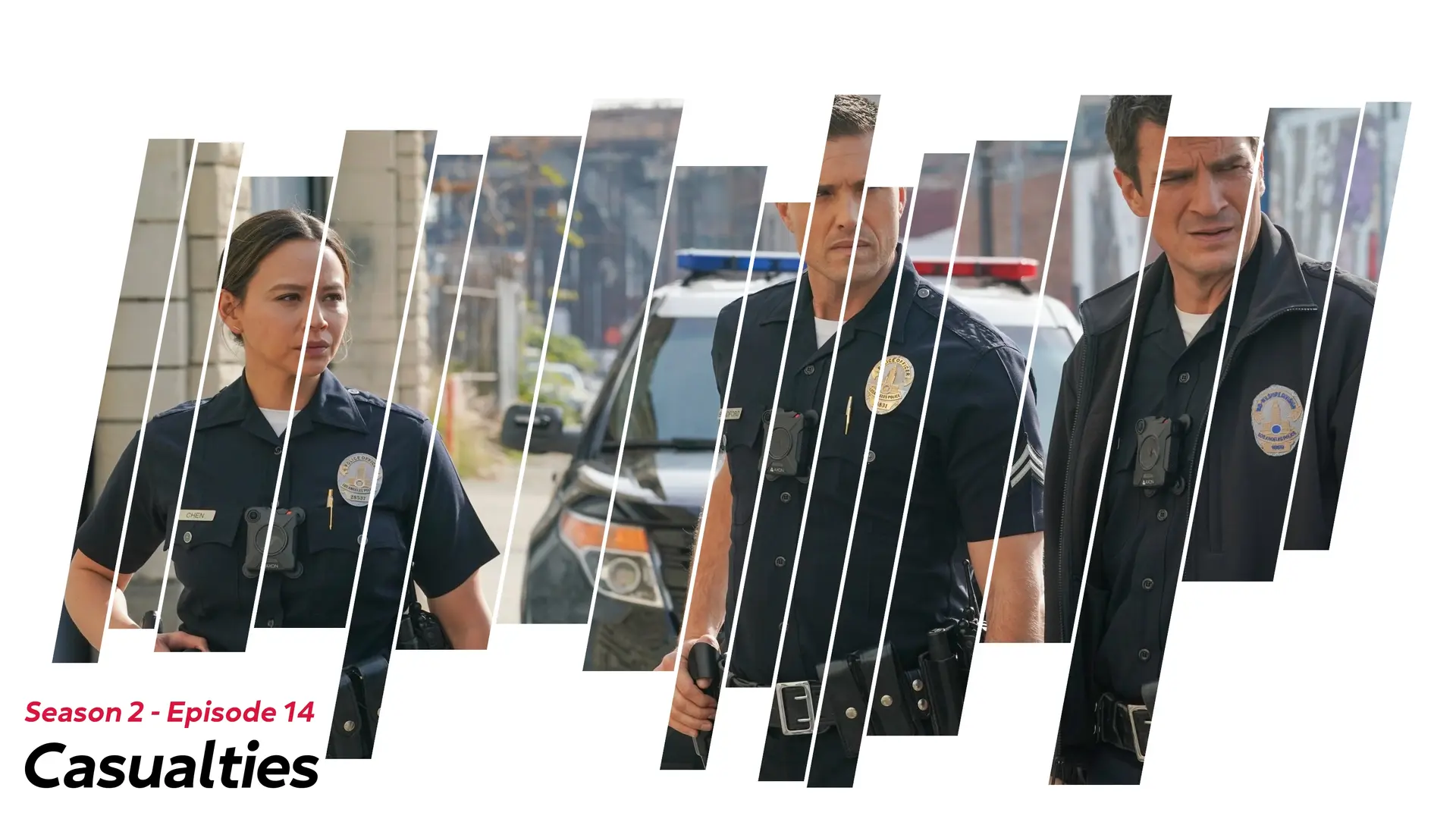Striped Card Type
These cards feature a solid color overlay with stripes of rectangles "cut" out to expose the underlying Source Image. By default the stripes are randomly placed and sized, but this can be adjusted with an extra. The position of the text can also be adjusted to any of the four corners.
This card type is used whenever card_type is specified as striped.
Example
Valid extras
| Label | Default Value | Description |
|---|---|---|
angle |
79.5 |
Angle of the stripes |
episode_text_color |
crimson |
Color to utilize for the episode text |
episode_text_font_size |
1.0 |
Size adjustment for the season and episode text |
inset |
50 |
How far to inset the start and end of the stripes |
inter_stripe_spacing |
8 |
Spacing between stripes |
overlay_color |
white |
Color of the overlay |
polygons |
random[ssmmmlll] |
Format for the size and order of the stripes |
separator |
- |
Character that separates the season and episode text |
text_position |
lower left |
Position of the text on the image |
Customization
Stripe Adjustments
Angle (angle)
The angle of the stripes can also be adjusted with the angle extra. A value of
90 degrees will result in the stripes being perfectly vertical, and the
"orientation" of the stripes can be reversed by specifying angles larger than 90.
Definition (polygons)
Advanced Setting
This setting is fairly complicated relative to the other available extras.
The specific order, width, and level of randomization of the stripes can be
fine-tuned with the polygons extra.
By default, this card selects a random size and then a random width of that
size - repeating the process until the card is "full" (i.e. no more horizontal
space). These pre-defined sizes are "small", "medium", and "large" and have been
abbreviated as s, m, and l.
This extra supports six different "kinds" of unique patterns to control how the stripes are drawn.
Random Order, Random Sizes
Specifying a definition like random[sml] will instruct TCM to randomly select
a stripe of the listed sizes in the specified ratio. This means that repeating
sizes - e.g. random[sssssml] - will result in those appearing with increased
frequency. For example sml will mean all sizes are equally likely, while
ssml will mean small stripes are twice as likely as medium or large. The width
of each stripe will use the builtin size ranges.
Examples
Notice how the right-image has a much higher frequency of large (l)
stripes.
This pattern will always fill the width of the card.
Random Order, Fixed Sizes
Specifying a definition like random[100,200] will instruct TCM to randomly
select stripes of the listed width in the specified ratio. For example,
random[100,200] will result in random stripes of either 100 or 200 pixels
wide. Repition is allowed. These must be comma-separated positive values.
This pattern will always fill the width of the card.
Random Order, Random Size Ranges
Specifying a definition like random[10-20,200-250] will instruct TCM to
randomly select stripes of random widths from the specified ranges in the
specified ratios. For example: random[10-20,200-250] will result in random
stripes of widths between 10 and 20 pixels or 200 and 250 pixels (in equal
likelihood). Repition is allowed. These must be comma-separated positive values
in which the second value is equal to or greater than the first.
Examples
This pattern will always fill the width of the card.
Fixed Order, Random Sizes
Specifying a definition like sml will instruct TCM to generate stripes in
the specified order of random widths. For example: sml will always generate a
small, medium, and large stripe (repeated if a + is specified). The width of
each stripe will use the builtin size ranges.
This pattern will not repeat unless it ends with + - e.g. sml+.
Fixed Order, Fixed Sizes
Specifying a definition like 10,100,400 will instruct TCM to generate
stripes in the specified order of the specified widths. For example:
10,100,400 will generate stripes that are 10, 100, and 400 pixels wide
(repeated if a + is specified). These must be comma-separated positive values.
This pattern will not repeat unless it ends with + - e.g. 10,100,400+.
Fixed Order, Random Size Ranges
Specifying a pattern like 10-50,400-800 will instruct TCM to generate
stripes in the specified order of random widths from the specified ranges. For
example: 10-50,400-800 will result in a stripe between 10 and 50 pixels wide,
and another between 400 and 800 pixels wide (repeated if a + is specified).
These must be comma-separated positive values.
This pattern will not repeat unless it ends with + - e.g. 10-50,400-800+.
Inter-Stripe Spacing (inter_stripe_spacing)
The spacing between sequential stripes can be adjusted with the
inter_stripe_spacing extra.
Episode Text Adjustments
For adjustments, the "episode text" refers to the combined season and episode text.
Color (episode_text_color)
The color of the episode text can be adjusted with the episode_text_color
extra.
Size (episode_text_font_size)
The size of the episode text can be adjusted with the episode_text_font_size
extra. The boundaries for the stripe height are dynamically adjusted to prevent
the stripes from overlapping the episode text.
Overlay Color (overlay_color)
The color of the solid overlay can be adjusted with the overlay_color extra.
This extra does support transparency.
Separator Character (separator)
If both the season and episode text are displayed on the Card, then a separator character is added between them. This character can be adjusted with the Separator Character extra.
Mask Images
This card also natively supports mask images. Like all mask images, TCM will automatically search for alongside the input Source Image in the Series' source directory, and apply this atop all other Card effects.
















